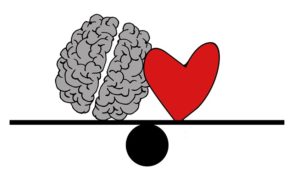 “Who knows what tomorrow brings
“Who knows what tomorrow brings
In a world few hearts survive.”
Thanks to Joe Cocker and Jennifer Warnes. (1)
I’d like to continue our conversation from two days ago. (2)
Why do so few hearts survive?
As we discussed yesterday, I think the problem is inherent in the structure of our communication in a Third-Dimensional world. I’d like to take another pass at the subject. I apologize for any repetition.
Most of us, particularly men, live, whether we’re aware of it or not, mostly? … only? … at the intellectual level of reality.
At that level, we seem to congregate around polarized questions of good/bad, right/wrong, beautiful/ugly, etc.
As far as I can see, the ego, whose pre-occupation is our survival, operates at this level to create stories throughout our lives, drawn from events, as we discussed yesterday, that represent us self-servingly.
In other words, we emerge from our carefully-groomed stories looking and sounding good, right, beautiful and all other good things.
We emerge responsible for all good outcomes and not responsible for the bad. We’re responsible for victories, not defeats; gains, not losses; fortunate outcomes, not unfortunate; etc.
In all ways, we de best.
This self-servingness works to counterbalance the criticism we get from others and the resulting lack of self-worth which seems so common in our society. All of it goes on outside the experience of love.
We create alliances with people who will agree with us and “buy” our story … I almost said, our BS. And this is as good as life gets, as long as we stay at this level. No love (not the love I have in mind); (3) just self-righteousness.
Meanwhile, in my opinion, a lot of harm is caused because, for every one that’s right, someone gets to be wrong; for good, bad; etc. That leaves a lot of bruised feelings and animosity that, these days, few hearts survive.
***
The next level up is the experiential. That recognizes that there is a whole world of experience that we may be shut off to, without knowing it.
But knowing it allows us to see in a much fuller way why the other person does what they do and what it is they need.
Ask this person how they feel and they’ll likely respond: Good or not so good. If you persist, they may get disturbed as people do when asked something they don’t know. … OK, as I do when asked something I don’t know.
As a society I’d say, respectfully, that we’re out of touch with our feelings. We’re not used to observing and being aware of them. We don’t know how to name what we feel.
We don’t appear to have a well-developed emotional language. Our emotional IQ is not what it could be. And perhaps will be.
I know it took me six weeks of a twelve-week resident encounter group in 1975/6 to discover that I was out of touch with my feelings.
Our feelings are what motivate us to act. “I was so angry, I protested.” “I was so touched, I wept.” “I was so much in love, I couldn’t help myself.”
We then consult our thoughts on what to do, unless our feelings are so strong that they dictate our immediate action. Then it looks like we acted “unthinkingly.”
***
Why I write is that I want to encourage folks to widen their communication net to include the experiential/emotional.
When we do, we immediately find that we’re getting the information from our partner or others that we need to make an informed and friendly decision. And they no longer feel vilified or attacked.
If we’re the listener, in my view, what we need to listen for is the speaker’s feelings. We periodically mirror them back to confirm our understanding: “You sound (disappointed, discouraged, elated).” Once their feeling is acknowledged, most people appear to move on to the next subject.
It’s interesting how that happens. Is the emotional experience what they were looking for or simply the satisfaction of being heard?
I think, if we were able to ask folks, we’d find that being heard is a chronically-felt need in our societies. Really heard. (4) Until the speaker has had a chance to get all the pieces out there on the table and survey the whole scene. “Oh, that’s what this is all about.”
I won’t go into the subject here more than to make this plea and develop it elsewhere. In my opinion, we need to add to our intellectual sharing an emotional dimension to more authentically present ourselves and be more deeply understood.
The alternative is to engage in intellectual discussions of right/wrong, leaving residue that festers and drives separation.
If we want our hearts to survive, we need to expand our range of communication and eliminate the focus on good/bad, right/wrong, and beautiful/ugly.
Footnotes
(1) Up Where We Belong. Joe Cocker and Jenner Warnes.
(2) See “Talking on Two Levels: Two Solitudes?”
(3) Transformative love is apparently seventh-dimensional:
Steve: The space that I call transformative love, what dimension is it?
Archangel Michael: It is the Seventh Dimension. (Archangel Michael in a personal reading with Steve Beckow through Linda Dillon, Jan. 20, 2016.)
See Love Like We Never Imagined It to Be at https://goldenageofgaia.com/wp-content/uploads/2021/07/Love-Like-We-Never-Imagined-It-to-Be-R13.pdf
(4) For more on the subject see:
- Are You Listening? at https://goldenageofgaia.com/wp-content/uploads/2011/08/Are-You-Listening-R5.pdf
- A Manual for Listeners at https://goldenageofgaia.com/wp-content/uploads/2021/07/A-Manual-for-Listeners-R2.pdf
- The Value of Listening at https://goldenageofgaia.com/wp-content/uploads/2021/08/The-Value-of-Listening-3.pdf

